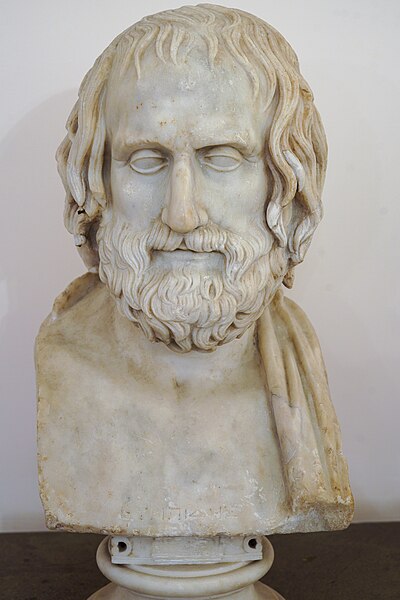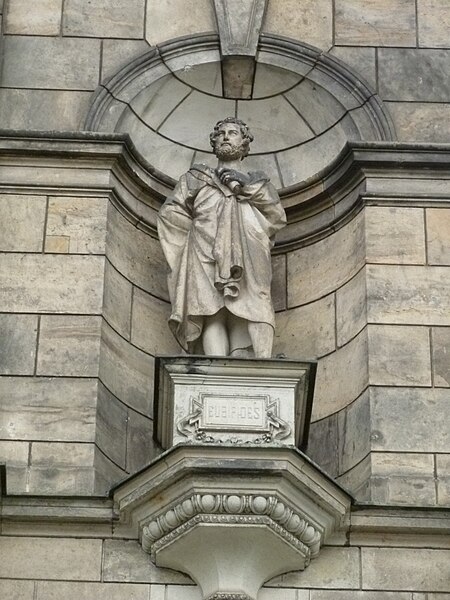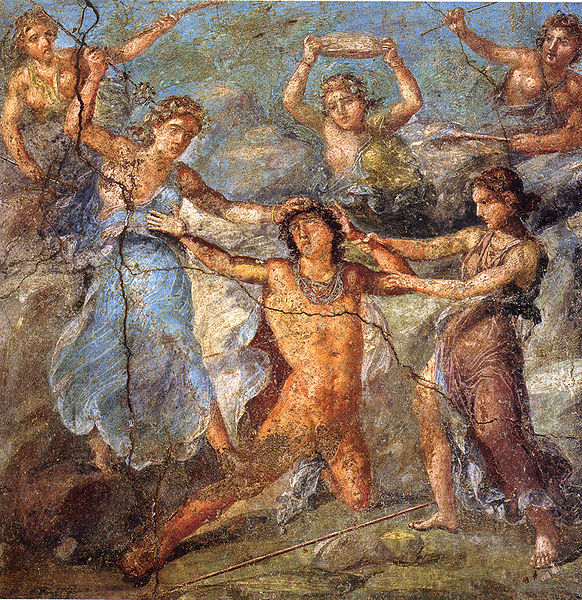In Greek mythology, Eurystheus was king of Tiryns, one of three Mycenaean strongholds in the Argolid, although other authors including Homer and Euripides cast him as ruler of Argos.
Hercule apporte à Eurysthée la ceinture de la reine des Amazones by Daniel Sarrabat
Eurystheus hiding in a storage jar as Heracles brings him the Erymanthian boar. Side A from a red-figure kylix by Oltos, ca. 510 BC, (Louvre)
Euripides was a tragedian of classical Athens. Along with Aeschylus and Sophocles, he is one of the three ancient Greek tragedians for whom any plays have survived in full. Some ancient scholars attributed ninety-five plays to him, but the Suda says it was ninety-two at most. Of these, eighteen or nineteen have survived more or less complete. There are many fragments of most of his other plays. More of his plays have survived intact than those of Aeschylus and Sophocles together, partly because his popularity grew as theirs declined—he became, in the Hellenistic Age, a cornerstone of ancient literary education, along with Homer, Demosthenes, and Menander.
Bust of Euripides
2nd century AD statue of Euripides, Louvre, Paris
19th century statue of Euripides in a niche on the Semperoper, Germany
Ancient Roman wall painting from House of the Vettii in Pompeii, showing the death of Pentheus, as portrayed in Euripides's Bacchae






